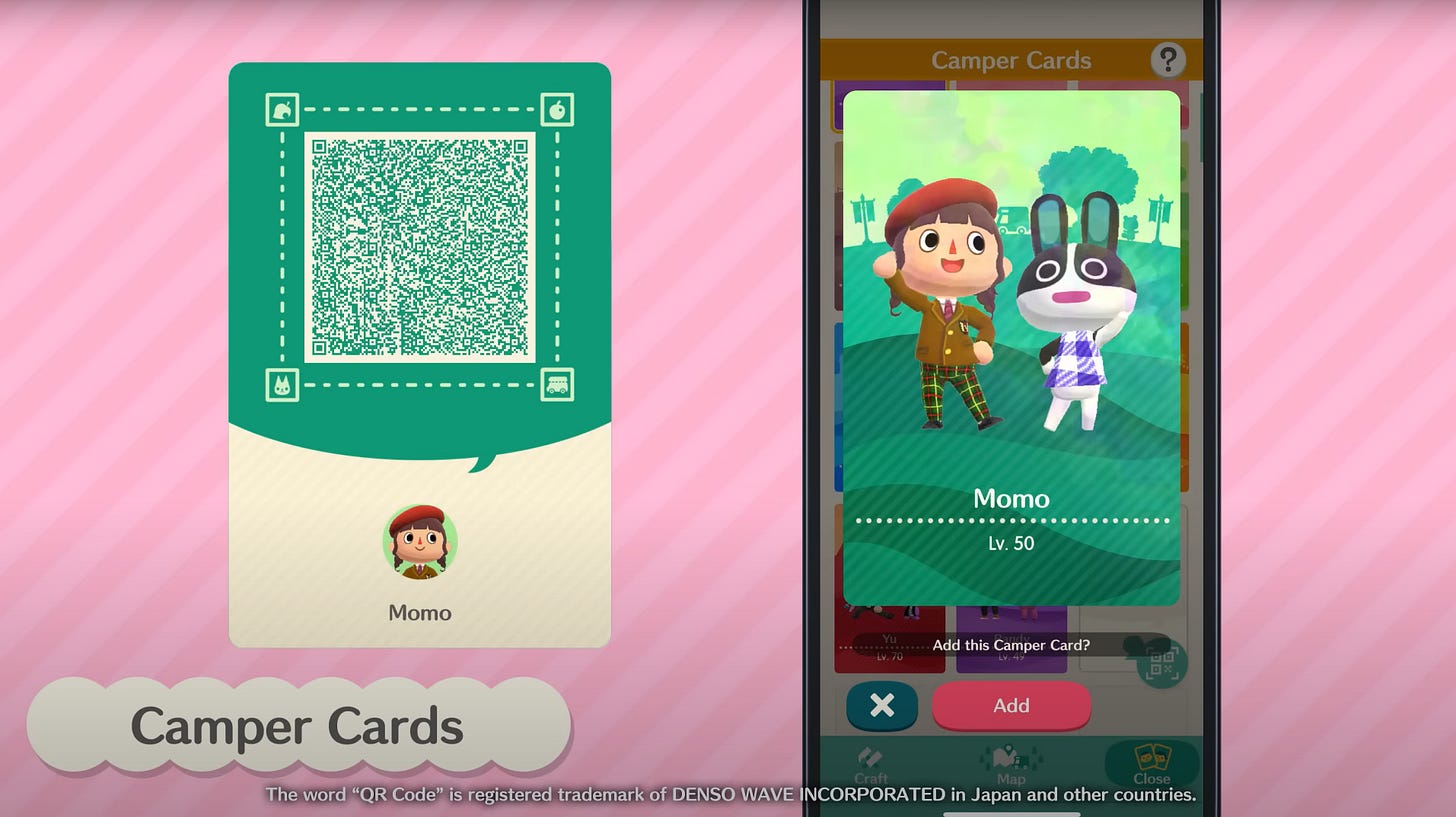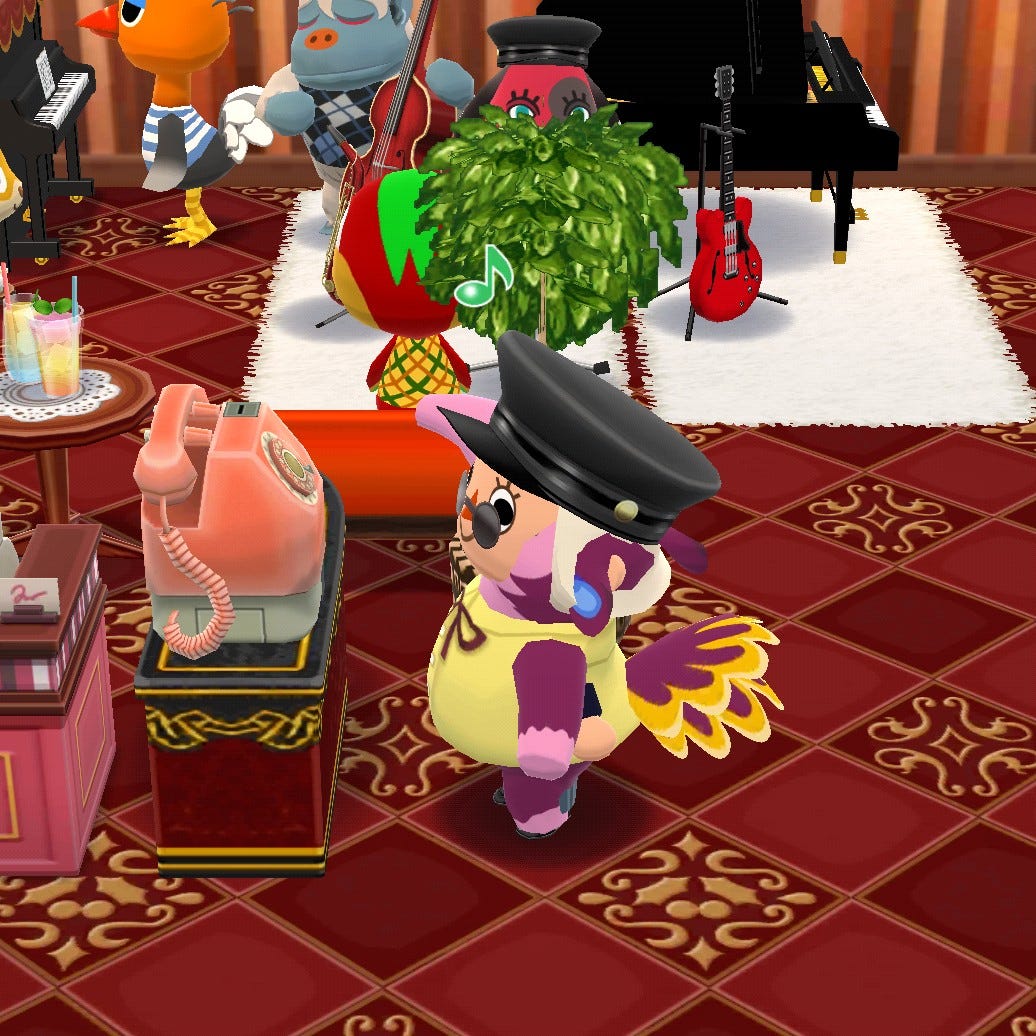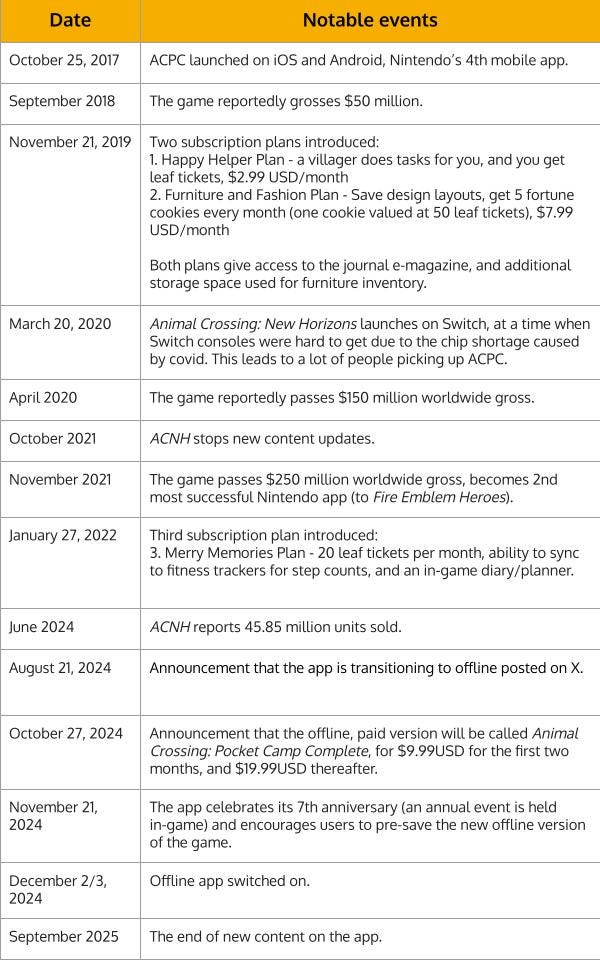Nintendo killed your SaaS villager⚰️
BONUS ISSUE: Nintendo shut one of their SaaS products - here's a post mortem!
📬In this issue:
Welcome to a bonus issue of Mehdeeka, where myself and Harrison Polites (award winning PR, gaming enthusiast and writer, and prior Mehdeeka guest) are going to break down what’s happening with Nintendo and their mobile app, Animal Crossing: Pocket Camp.
The TL;DR history of the game is it started as free to play with microtransactions, then added in several SaaS style subscriptions, and now has just this week ended the SaaS support, moving to an offline-with-one-time-payment business model.
This intersection of gaming news and SaaS formed a perfect Venn diagram between myself and Harrison, so we came together to break it down from both of our respective perspectives! Enjoy
Animal Crossing: Pocket Camp Complete
Harrison: So, Kayla, what's going on with Animal Crossing: Pocket Camp?
Kayla: So, two fairly common things are happening which, in combination, is actually a rare event. The first is that the Animal Crossing: Pocket Camp app has just been transitioned to an offline version, and the second is that we’re witnessing a very public and large closure of a SaaS business unit.
Usually, subscription services die in darkness, often because they haven’t found product market fit and no one ever notices let alone documents it. But, given this is a Nintendo product, we’re getting a really deep look at what actually goes into the process of closing up shop, and we also get a good look at performance metrics, including financials, from which we can take some estimated guesses at what’s happening behind the scenes.
H: OK, that is interesting. Nintendo has been known to sunset products on occasion and doesn’t really do long-term support for games or services like other companies. It’s mobile games have been a unique exception to this until now.
This most commonly happens with the various Nintendo Online stores supporting their consoles; the Wii U eShop was closed last year. Perhaps the key difference here is that Nintendo doesn’t like to let its product limp along. For contrast: The Playstation 3 store is falling apart, and can’t take payments via card anymore.
Back to Animal Crossing: Tell me a bit more about this closing process? What are we seeing?

K: The closure was announced in August, with only three months' lead time. For ACPC in-game notifications of changes this big, this is really quick. Players noted that simple maintenance notices would sometimes get more lead time than this.
It was announced first on X (notably, this post isn’t pinned) and in-game, and the reception to it was pretty split depending on which community you went to. I’m a big redditor, and I’ve been in the r/ACPocketCamp sub since I first started playing in March 2020 (shout out to the New Horizons FOMO x Switch/chip shortage), so the first reactions I saw were almost akin to grief.
Checking the r/Nintendo sub however, there’s a very different sentiment of “at least they’re not discontinuing the game completely, this is a great way to end things.”
Nintendo have drip fed updates since then, mostly covering how to make sure you don’t lose your data, some changes, some features that will be totally discontinued, and that sort of thing — but there are still lots of posts in the r/ACPocketCamp sub with niche, unanswered-by-Nintendo questions.
H: That’s a good jumping point to discuss Nintendo’s general approach to communications — at least from a PR perspective. About a decade or so back, Nintendo pulled away from general press releases and using the media as a primary channel of communication. Now, it relies on blog posts and videos (Nintendo Directs) which then the media amplifies via republishing and quoting it as a source.
This is generally because every little thing Nintendo does is a story — and can affect its share price in Japan. There’s an immense amount of coverage this company receives daily that would make some of Australia’s largest firms — perhaps even the global tech giants — blush. It controls the message by limiting the number of primary sources for it. This kind of communication approach however, isn’t as effective for managing users or the closure of ongoing services — something that Nintendo as a company doesn’t do a lot of anyway.
If I compare it to other online service-based games that I play: Almost every announcement is followed by an EDM campaign, social media messaging and now (because I’ve moved into being a press target for them too) a press release with the same message usually a day later. That said, this is all for new content, not for information about anything they are closing down or cutting off. What else could Nintendo do here Kayla? And how is the community reacting to the news?
K: The first community reaction that comes to mind is quite dramatic. The online connection going down means players can’t interact with their friend list - it doesn’t update automatically anymore. In its place though, there’s a new feature where you can collect other player’s “trading cards” which feature an image of their character. Leading up to the release of the offline version which was just a few days ago, people didn’t know if the cards will update if they change their outfits, so there’s been a lot of chatter around “death outfits” – i.e. the last outfit people will see them in, immortalised forever in the player card.
From a comms and marketing standpoint, I think Nintendo has followed a pretty standard process in terms of shutting a service, that is:
Announcement and multiple reminders
Find and offer an alternative service
Offer a limited discount to that alternative as a show of thanks (the game will cost $9.99 for two months, and then $19.99 thereafter)
The bigger business question is what is the strategy here? Usually a closure means a failed business, or no longer having the resources to upkeep a service. In SaaS it’s a lack of product market fit, or having that fit but not being able to sustainably monetise it.
From the lack of retargeting and growth campaigns, it doesn’t seem like Nintendo was gunning for huge growth ambitions – ACPC was never that heavily advertised. It doesn’t get paid advertising the way their console games do. From the revenue reports, ACPC has grossed more than $250M worldwide, as of November 2021. There may have been steady decline of revenue in the three years since then, but since it’s a seven year old game, surely it had covered its startup costs, and revenue would then be reflective of how much effort they put into continuing to promote it and find new “whales” willing to spend thousands on microtransactions.
So, one final question for you, Harry, what is the business strategy of gaming? Why do some games end, and some get continuous updates?
H: Game companies are weird Kayla. Like most businesses, it generally comes down to cost versus return. So if a game service is costing money to both run and maintain, but isn’t generating a financial return, then it can be on the chopping block to be cut. There are plenty of live service games that are shut down as the community moves on.
But not always. Larger gaming companies are heavily influenced by the whims of their fans. On occasion, they are willing to take a loss, or run a product with a low margin if it serves the community.
Consider Pokemon Home — an online service that allows you to save and move Pokemon that you’ve captured across various Pokemon games. That launched years ago, it’s unclear whether it’s growing or making any kind of profit — it costs around $25 a year for its premium plan. That app may break even considering the server costs required for it. I’d suspect usage would also tend to suffer when there’s no new mainline Pokemon games, as there hasn’t been for a few years now. But if Nintendo shut that down it would cause an absolute outrage. Even casual users may have years worth of hard-earned Pokemon stored there.
It’s what makes this news around Animal Crossing: Pocket Camp so curious. Unless something is really draining the company, it tends to do its best to maintain any launched services for the sake of keeping gamers happy. The offline version is likely a compromise, it allows them to keep the game going in some capacity, without needing to invest further resources needed to justify charging an ongoing subscription with micro-transactions. Any closing thoughts from you Kayla as we wrap this up?
K: Personally, I’m really interested to see how this pans out over the next 12-18 months, especially once the content updates stop. Initial reaction to something, particularly something that no one has their hands on yet, isn’t always an accurate indicator of what the sentiment will be once it’s available. When the app actually released earlier this week, it surprisingly included a feature from New Horizons where players can customise their clothing and it’s been met with an overwhelmingly positive response.
Animal Crossing is part of a larger brand with multiple other game installments; maybe this means something new is coming? The Switch 2 is eagerly anticipated, maybe there’s something in the timing and we just aren’t privy to that information.
Whatever it is, I’ll look back on my time with Animal Crossing: Pocket Camp fondly, a bit like a time capsule. I won’t be downloading the offline version or paying for it, but as a user, I am definitely more inclined to grab the next console game now that I’m familiar with the franchise.
ACPC timeline
Enjoyed this gaming detour?
Check out Harrison’s own Substack, where he covers different parts of the gaming industry and reviews what he’s playing:
I’ll be back from now until Christmas
Expect to see me in your inbox a few more times this year, going through the Mehdeeka archive to bring out older issues that are helpful around this time of year for planning, reflection, and career-focused existential questions, the three gifts of Australian businesses shutting down in December and not coming back till after Australia Day.
If you have anything you’re currently facing, let me know and I’ll dig out an issue for it!
Ho ho ho,
Kayla







fascinating read and love both of your opinions of gaming x SaaS (or in this case.. non SaaS)